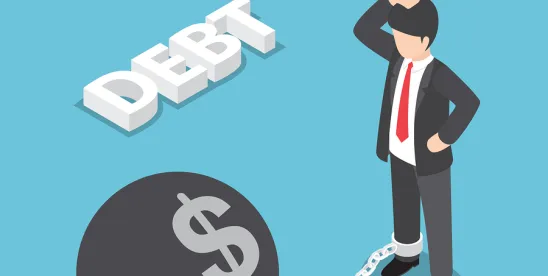The Seventh Circuit rejected emotional distress and other intangible injuries as a basis for Article III standing in a class action seeking statutory damages under the Fair Debt Collection Practices Act (FDCPA). In Pierre v. Midland Credit Management, Inc., Nos. 19-2993 & 19-3109, 2022 WL 986441 (7th Cir. Apr. 1, 2022), relying on the recent Supreme Court decision in TransUnion LLC v. Ramirez, 141 S. Ct. 2190 (2021), the Seventh Circuit vacated and remanded with instructions to dismiss for lack of subject-matter jurisdiction. It is just the latest in a growing number of appellate court decisions addressing Article III standing in class actions based on statutory damages claims.
Factual and Procedural Background
Plaintiff Renetrice Pierre accumulated and defaulted on a credit card account. Years later, in 2015, defendant Midland Credit Management, Inc. (Midland Credit) sent Pierre a letter seeking payment of the debt in its role as a collector for Midland Funding — which had purchased Pierre’s debt. The letter stated she was approved for a discount program that would save her money, and included an expiration date of 30 days. The debt was so old that the statute of limitations had run — Midland Credit, therefore, could ask for payment but could not sue for payment. Its letter concluded, “The law limits how long you can be sued on a debt. Because of the age of your debt, we will not sue you for it, we will not report it to any credit reporting agency, and payment or non-payment of this debt will not affect your credit score.”
Pierre reacted to the letter with surprise, confusion, and concern, yet she did not pay any of the debt or agree to pay any of the debt. She alleged she suffered emotional distress and confusion based on the letter and that she had to contact Midland Credit to contest the debt collection and hire a lawyer. She sued Midland Credit under the Fair Debt Collection Practices Act (FDCPA) on behalf of a class of Illinois residents who received similar letters. The Northern District of Illinois certified the class and entered summary judgment for the class, and a jury awarded more than $350,000 in damages.
The Majority Determined Pierre Failed to Establish Article III Standing
Addressing the concreteness requirement of Article III standing, the Seventh Circuit noted that recent decisions had hinted “the mere ‘risk of real harm’ could concretely injure plaintiffs seeking money damages.” However, the Seventh Circuit held that under TransUnion LLC v. Ramirez, 141 S. Ct. 2190 (2021), a risk of harm can only serve as a concrete injury for forward-looking, injunctive relief, and “[a] plaintiff seeking money damages has standing to sue in federal court only for harms that have in fact materialized.”
Pierre’s asserted harm, that the letter she received created a risk that she might make a payment on a time-barred debt, or restart the limitations period by either paying or promising to pay, represents only a risk of future harm, not any actual, experienced harm such as making a payment. The Seventh Circuit concluded that Pierre had therefore not established standing. Consistent with prior decisions, the Seventh Circuit also held that calling to dispute a debt and contacting a lawyer for advice were not legally cognizable harms, and that psychological states such as confusion and worry caused by the letter were likewise insufficiently concrete. Based on this analysis, the Seventh Circuit vacated the lower court’s judgment and remanded the case for dismissal for lack of subject-matter jurisdiction.
The Dissent Raised Concerns about Deference to Congress and a Growing Circuit Split
Circuit Judge Hamilton dissented and raised concerns about “zombie debt,” such as Pierre’s, and a greater circuit split on “whether Congress has the power under the Constitution to create private causes of action under the Fair Debt Collection Practices Act and other consumer protection statutes for injuries that are intangible but quite real.” The dissent asserted that Congress has authorized private actions to seek damages for harm such as emotional distress, stress, anxiety, confusion, and fear. In Judge Hamilton’s view, in passing the FDCPA, Congress specifically prohibited actions likely to cause intangible and emotional harm, such as fear and confusion, by including threats, obscene language, and false or misleading statements.
The dissent reasoned that Pierre’s claim satisfied Article III standing under both Spokeo, Inc. v. Robins, 578 U.S. 330, 340 (2016), and TransUnion, 141 S. Ct. 2190, “by offering evidence of harms that, first, lie close to the heart of the protection Congress reasonably tried to offer consumer debtors in the FDCPA, and second, bear close relationships to harms long recognized under the common law and constitutional law.”
The dissent pointed to the Third, Tenth, and Eleventh Circuits as being less restrictive in allowing standing for intangible injuries such as emotional or psychological harm under the FDCPA, and the Sixth and Eighth Circuits as issuing decisions with a broader approach toward standing for similar injuries.
Impact On Businesses Facing FDCPA Lawsuits Alleging Only Emotional or Psychological Harm
Businesses litigating FDCPA lawsuits within the Seventh Circuit should review this decision closely, as it may provide fruitful grounds for dismissing cases for a lack of subject-matter jurisdiction based on the failure to establish standing under Article III. However, as the dissent demonstrated, other circuits have interpreted standing more broadly and found emotional distress to be concrete enough to establish standing. Moreover, dismissal for lack of Article III standing may simply mean that the case moves forward in state court. Because of the differing approaches across the circuits and the important question raised regarding the power of Congress to protect consumers from a multitude of harms through legislation, we expect this to remain a contested area of law until the Supreme Court provides further guidance.




 />i
/>i

